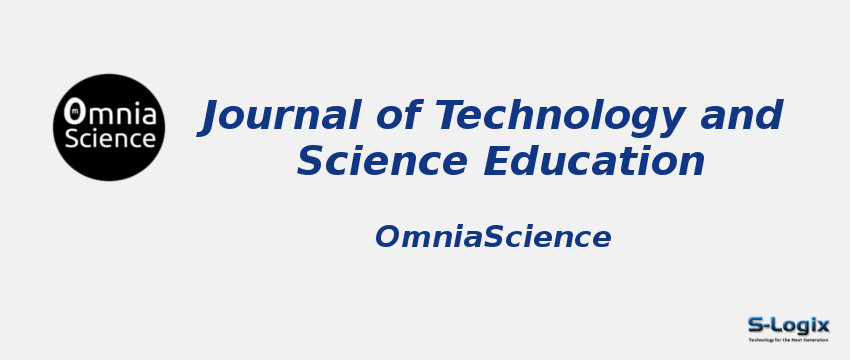Journal Home: Journal Homepage
Editor-in-Chief: Beatriz Amante GarcÃa
Print ISSN: 2013-6374
Electronic ISSN: 2014-5349
Abstracting and Indexing: Scopus
Imapct Factor : 6.219
Subject Area and Category: Computer Science, Computer Science Applications, Social Sciences, Education
Publication Frequency:
H Index: 23
Q1:
Q2: Education
Q3:
Q4:
Cite Score: 3.4
SNIP: 1.262
Journal Rank(SJR): 0.392
Latest Articles: Latest Articles in Journal of Technology and Science Education
Guidelines for Authors: Journal of Technology and Science Education Author Guidelines
Paper Submissions: Paper Submissions in Journal of Technology and Science Education
Publisher: OmniaScience
Country: Spain
